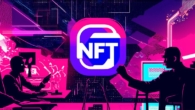
How can you begin selling NFTs
The Benefits of Selling NFTs:
Before diving into the steps to sell NFTs, it is important to understand the benefits that come with selling them. Some of the benefits include:
- Unique Ownership: NFTs provide a unique way to own digital assets that cannot be replicated or replaced. This makes NFTs valuable and attractive to collectors.
- Liquidity: Selling NFTs can provide a liquid way to monetize digital assets, allowing creators to access funds quickly and easily.
- Intellectual Property Protection: NFTs can provide a way to protect intellectual property rights for creators, as the unique ownership of NFTs ensures that creators retain control over their digital assets.
- Transparency and Security: NFTs are stored on blockchain technology, which provides transparency and security for transactions. This makes it easier to verify ownership and authenticity of NFTs.
The Steps to Sell NFTs:
Now that we have covered the benefits of selling NFTs, let’s dive into the steps to sell them. Here are some tips for NFT developers to get started:

- Choose a Platform: There are several platforms available for selling NFTs, including OpenSea, Rarible, and SuperRare. It is important to choose a platform that aligns with your goals and target audience. Consider factors such as the fees associated with each platform, the level of support provided, and the size of the community on the platform.
- Create Unique Content: To sell NFTs, you need to create unique content that is valuable to collectors. This can include digital artwork, music, videos, or any other type of digital asset. It is important to ensure that your content is high quality and unique, as this will increase its value and appeal to buyers.
- Determine Pricing: Determining the right pricing for your NFTs is important to ensure they are attractive to buyers. Consider factors such as the rarity and exclusivity of the content, as well as market demand. It is also important to consider any costs associated with creating and marketing your content, as well as any fees associated with selling NFTs on a particular platform.
- Build a Community: Building a community around your NFTs can help increase their value and attract more buyers. This can include creating social media accounts, hosting events, or engaging with collectors through forums. By building a community, you can create buzz around your NFTs and generate interest from potential buyers.
- Market Your NFTs: Once you have created your content and determined pricing, it is important to market your NFTs effectively. This can include using paid advertising, influencer marketing, or partnerships with other creators. It is also important to consider the timing of your sale, as some platforms may have specific timeframes for selling NFTs.
- Manage Your NFTs: Selling NFTs requires ongoing management to ensure that ownership and authenticity are maintained. This includes updating metadata, responding to inquiries, and handling transactions on the blockchain. It is important to have a clear plan in place for managing your NFTs to avoid any potential issues with ownership or authenticity.
Case Study:
One example of a successful NFT sale is the “Beeple Everydays” project. In 2021, digital artist Beeple sold his NFT collection for $69 million, making it one of the most valuable NFT sales to date. The collection consisted of 5,000 unique NFTs, each representing a different day in 2021. The project generated a lot of buzz and interest from collectors, as Beeple is a well-known digital artist with a large following.
Conclusion:
Selling NFTs can be a lucrative way to monetize digital assets, but it requires some knowledge and understanding of the market. By following the steps outlined in this article and considering the benefits and risks of selling NFTs, NFT developers can successfully begin selling NFTs and access a new revenue stream for their digital assets. However, it is important to carefully consider the costs associated with creating and marketing your content, as well as any fees associated with selling NFTs on a particular platform. Additionally, ongoing management of NFTs is crucial to ensure that ownership and authenticity are maintained.







